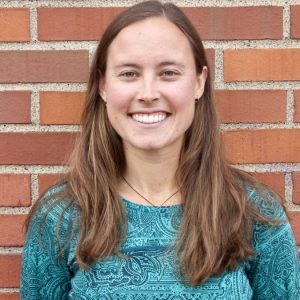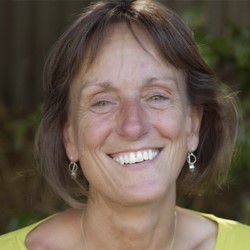Pilot Projects
Below is a list of the Emerald Corridor Collaboratory’s pilot projects and their leads. Projects vary across the region in scope and progress; these will be updated through this initiative’s lifetime.
Portland State University & Portland
Project: Cross-Evaluation of Three Concurrent Projects
University Leads: Fletcher Beaudoin, Institute for Sustainable Solutions, PSU; and Molly Baer Kramer, Institute for Sustainable Solutions, PSU
City Partners: Michele Crim, City of Portland; Dawn Uchiyama, City of Portland; and Alice Brawley-Chesworth, City of Portland
Description: Portland State University will conduct a meta-analysis of three ongoing, existing projects: developing a city-wide green infrastructure vision and strategy, updating the city’s Climate Action Plan, and creating systems to strengthen the city’s ability to prepare for and recover from natural disasters. We will evaluate all three projects simultaneously at different points over the next several months with an eye toward finding syntheses between the disparate projects that can help to aid or augment their success.
Progress, June 2019: Together, the City of Portland and Portland State University has established a five-year vision and one-year work plan for their next generation of CUP. Thought leaders within the CUP laid the foundation, but the effort was a culmination of academic staff, students, and municipal government and staff participation.
University of British Columbia & Vancouver
Project: University-City Partnership Assessment
University Leads: Angelique Pilon, Sustainability Initiative, UBC; and Victoria Smith, Sustainability Initiative, UBC
City Partners: Doug Smith, City of Vancouver; and Brad Badelt, City of Vancouver
Description: The University of British Columbia is assessing the breadth and depth of partnerships between faculty and the City of Vancouver. Documenting these connections will provide foundational information to identify a key topic areas for longer, more sustained research collaborations. The Emerald Corridor Collaboratory provides and opportunity to assess these partnerships and develop a network mapping of collaborations.
Progress, June 2019: Faculty and municipal staff have engaged in survey and interview efforts to provide insight into existing and past projects between city and university. Results from surveys and interviews are currently being analyzed. However, the process has provided lessons regarding factors of success or challenges in implementing collaborations.
University of Washington & Seattle
Project: LEAP FROG to a Shared Right of Way
Project Leads: Thaisa Way, Urban@UW; A-P Hurd, SkipStone; and Barbara Swift, Swift Company
Project Partners: Rachel Berney, Michelle Caulfield, Benjamin de la Pena, David Driskell, Mami Hara, Jonathan Hopkins, Julie Johnson
Description: The University of Washington is partnering with the private, public and non-profit sectors to re-imagine the right of way in Seattle. New tools and approaches will be utilized by the partnership to develop a project that “leapfrogs” traditional uses of the right of way. The team will also assess the successes and challenges of working in a partnership across sectors, and how this model can be leveraged for other projects.
Progress, June 2019: Project partners from UW, the City and the private sector selected two pilot projects from a list of candidate neighborhoods. Projects were selected based on community need and capacity. Community leaders worked directly with private sector leaders and UW faculty and students to plan, fundraise, and execute projects unique to each community’s goals. Project work is coming to an end and lessons learned will be synthesized for individual projects and the collective effort.
Western Washington University & Bellingham
Project: Disaster Preparedness Planning
University Leads: Lindsey MacDonald, Western Sustainability, WWU; and Rebekah Paci-Green, Department of Environmental Studies, WWU
City Partners: Brian Heinrich, City of Bellingham; Rick Sepler, City of Bellingham; and Lynn Sterbenz, City of Bellingham
Description: Western Washington University will begin assessing local disaster preparedness in Bellingham over the next several years. Every year students in a spring quarter course on disaster risk reduction planning will survey residents about their individual, household and community preparedness. Students will also examine the local preparedness of specific neighborhoods, groups, and service providers. As the project progresses, the data they collect will be used to improve community outreach and preparedness for earthquakes, storms and other significant disasters. This project is being completed in collaboration with the City of Bellingham’s Emergency Manager, and will engage additional City and University staff, as appropriate. Plans to coordinate with Whatcom County Emergency Management on a countywide survey are also under consideration.
Progress, June 2019: Western Washington University (WWU) faculty, the City of Bellingham, and Whatcom County created and implemented an emergency preparedness survey with the assistance of community volunteers and WWU students. High levels of engagement from multiple stakeholders led to project success. Data collection will continue for the next three-to-five years and will ultimately inform actions taken by the City of Bellingham.
back to top














